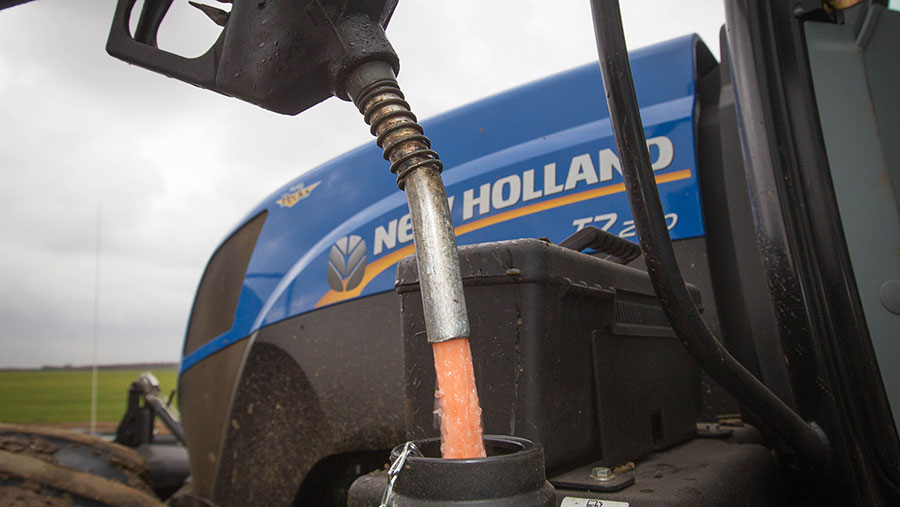FW Opinion: Price turmoil means big bets to stay in the game
 © Tim Scrivener
© Tim Scrivener If the farming profession normally feels like gambling, then shifts this week in the cost of doing business have seated us at the high-stakes table.
Even if you stayed in the office full-time, it seems unlikely you’d be able to update a budget forecast fast enough to keep pace.
Last week in the arable sector it momentarily felt as if the astonishing crop price rises had inched ahead of costs increases.
See also: FW Podcast Special: Impact of Russia-Ukraine war on farming
No doubt this incentivised some of those still without enough fertiliser to bite the bullet and order supplies, if they were available.
This week concerns have escalated as talk abounds of prices reaching four-digit territory and red diesel breaking records on a daily basis.
For other sectors these costs are also increasing, but output prices have been more stable, although a fresh round of milk price rises for some are welcome.
The question is how much the cost of something has to rise before it significantly alters the behaviour of a big chunk of the farming sector.
A price is a signal wrapped up in an incentive, according to US economists Alex Tabarrok and Tyler Cowan.
They note that in a world of staggering interconnectedness and complexity, the occurrence of high prices produces incentives that could not have been foreseen.
The spike in oil prices in the 1970s changed the behaviour of lovestruck but cash-strapped young men on Valentine’s Day.
Roses, which were then grown in heated greenhouses, jumped in price, so they bought more chocolate and teddy bears instead.
It would have taken a lot to predict that oil price rises would cause an increase in chocolate consumption.
Unforeseen changes
Who knows what unforeseen changes will arise as a result of the current situation, but hopefully the volatility will not lead to the destruction of any more of our food production capacity.
Already we have seen EU ministers meet to discuss what changes they could make to farm policy to improve food security.
Our Letters page is also full of calls for food production to take a higher priority over voluntary environmental schemes in government plans.
Defra’s central mantra since Brexit has been to seek to mainly intervene where the market does not adequately price environmental services, hence “public money for public goods”.
It wants the markets, not policymakers, to set demand for food.
George Eustice noted in his most recent speech (the day before Russia invaded Ukraine) that while input price rises are “challenging”, at the heart of future agriculture policy is a wish to support the choices individual farm enterprises make.
At the moment, the choice seems to be whether to order fuel at an eye-watering price or run out, a problem that may be outside the scope of government to solve.
Amid all this uncertainty, let’s hold on to one fact: The sheer ability to carry on making decisions about when to buy or sell is an acknowledgement that we believe we have the luxury of a future to plan for.
In Ukraine, for so many soldiers and civilians being continually pummelled by shells and rockets, all that is gone. Their future planning has been reduced to surviving the next 24 hours.
If you are able, please help refugees by donating to campaigns such as The Farming Forum’s excellent Send a Tonne of Wheat to Ukraine, which has already raised more than £16,000 for the Disasters Emergency Committee’s Ukraine Humanitarian Appeal.

